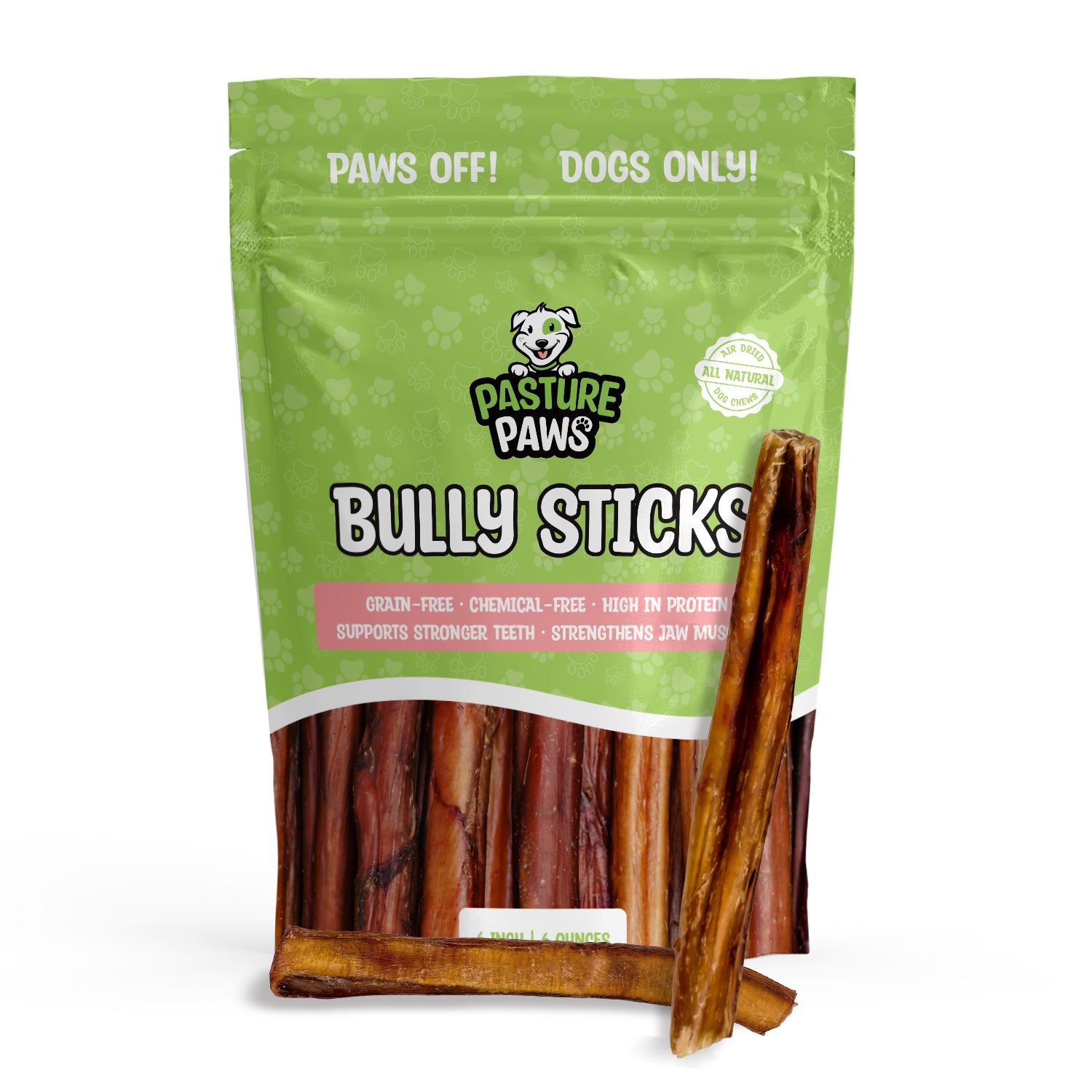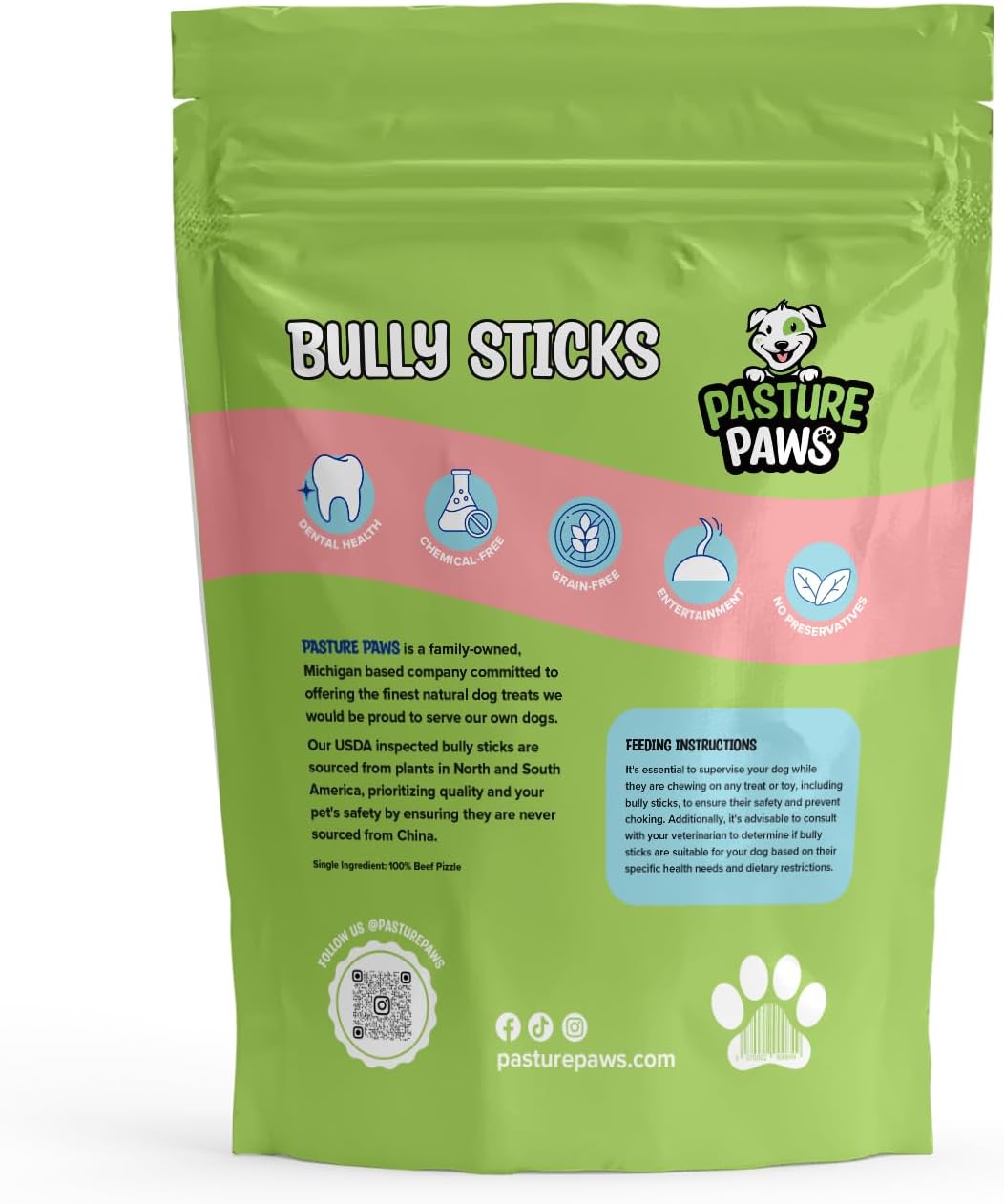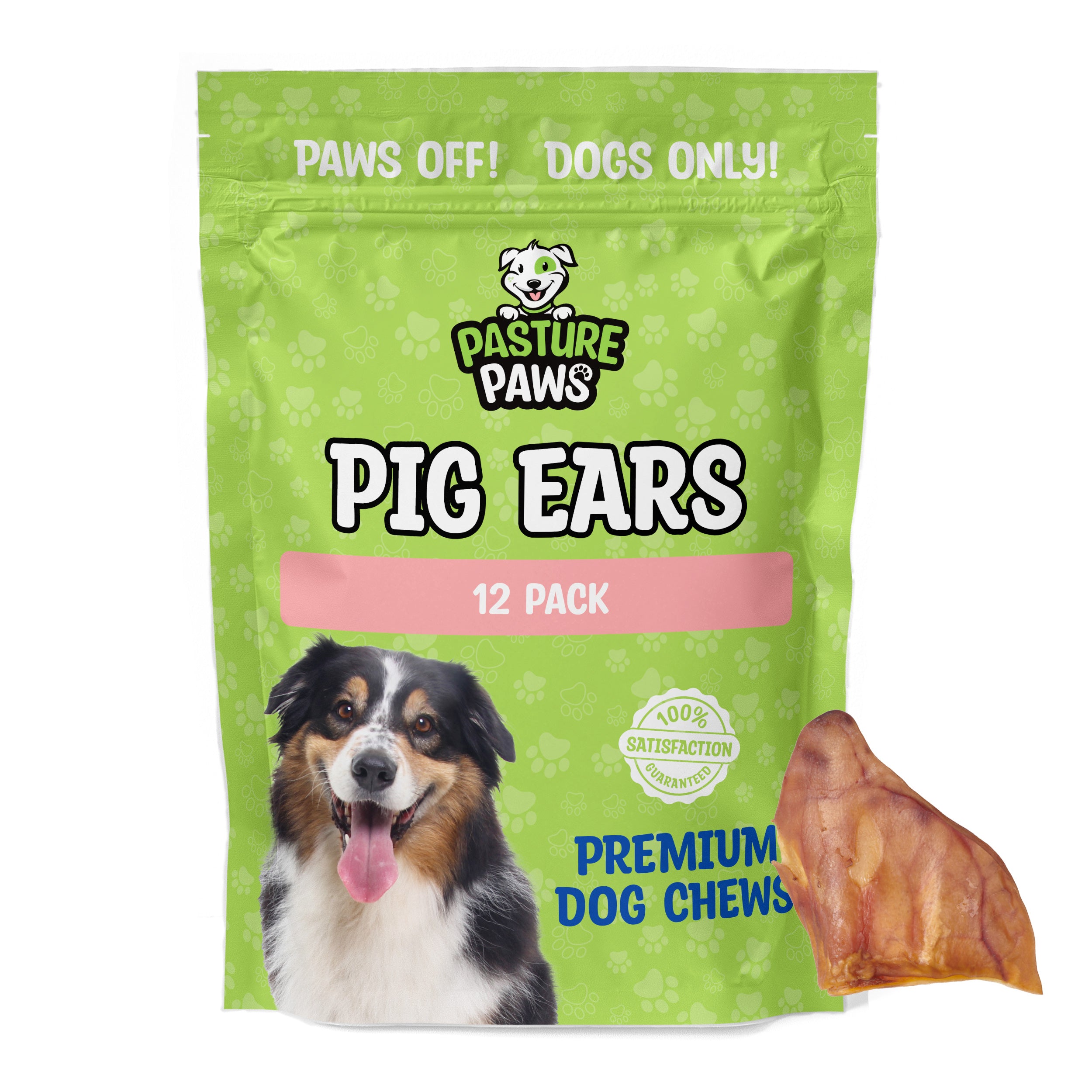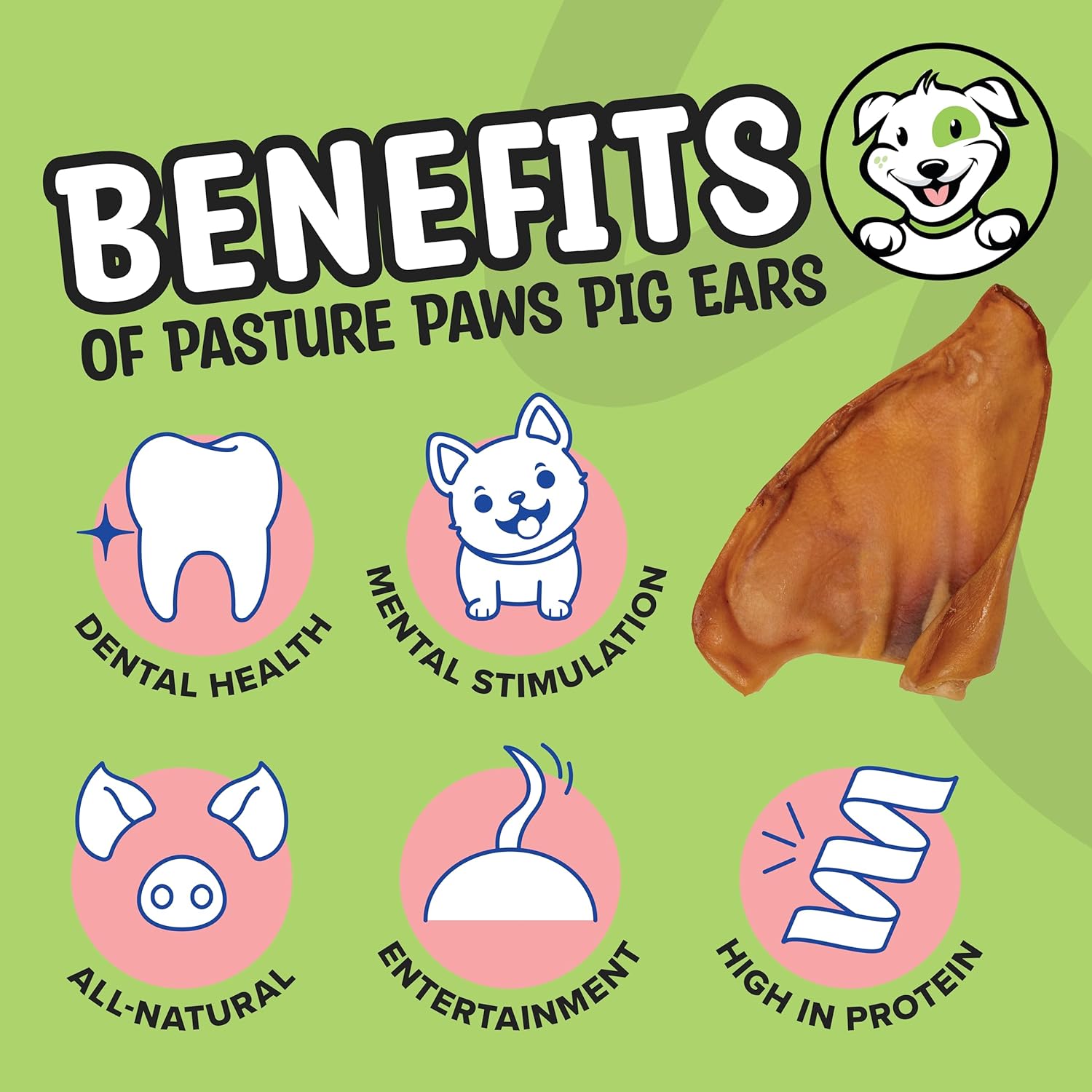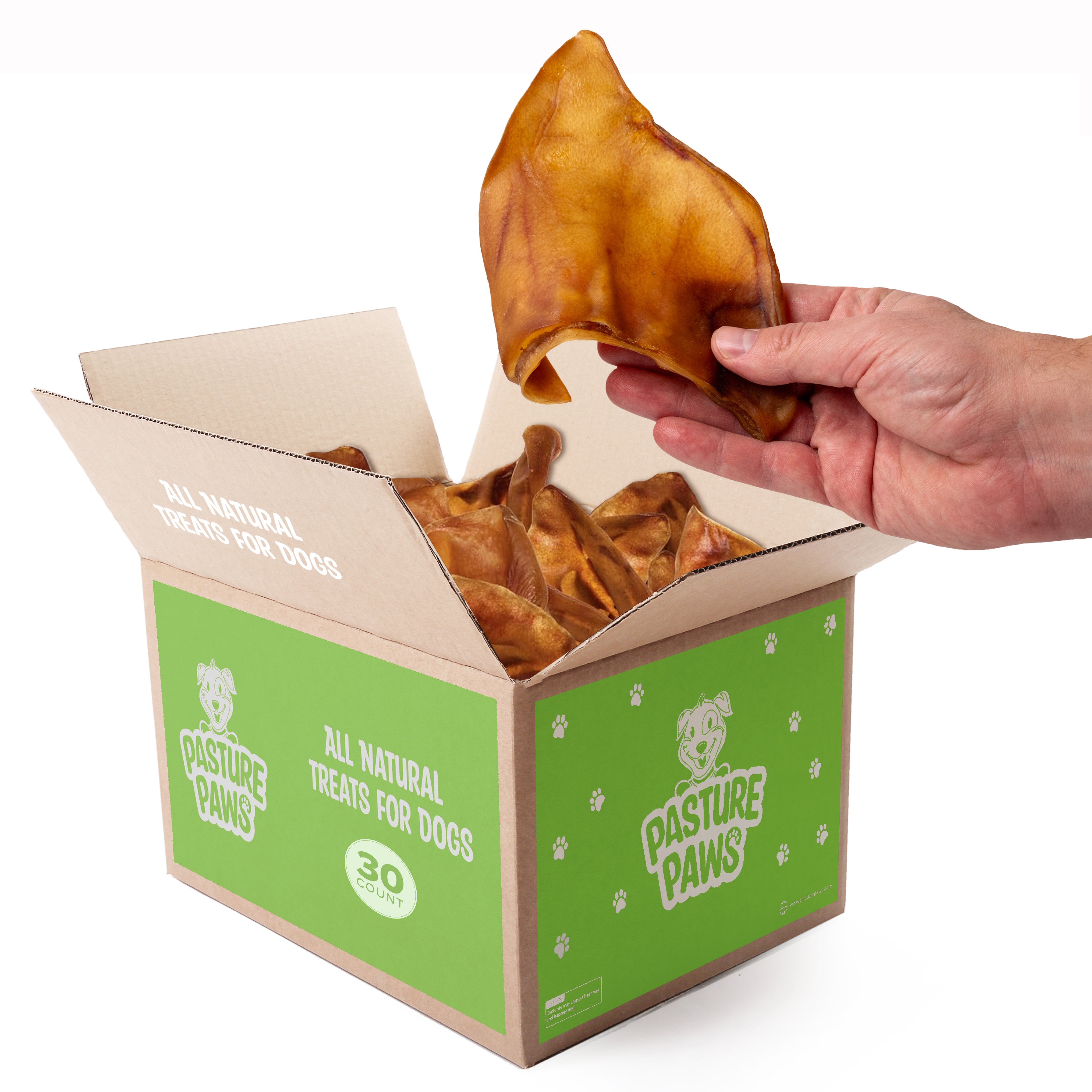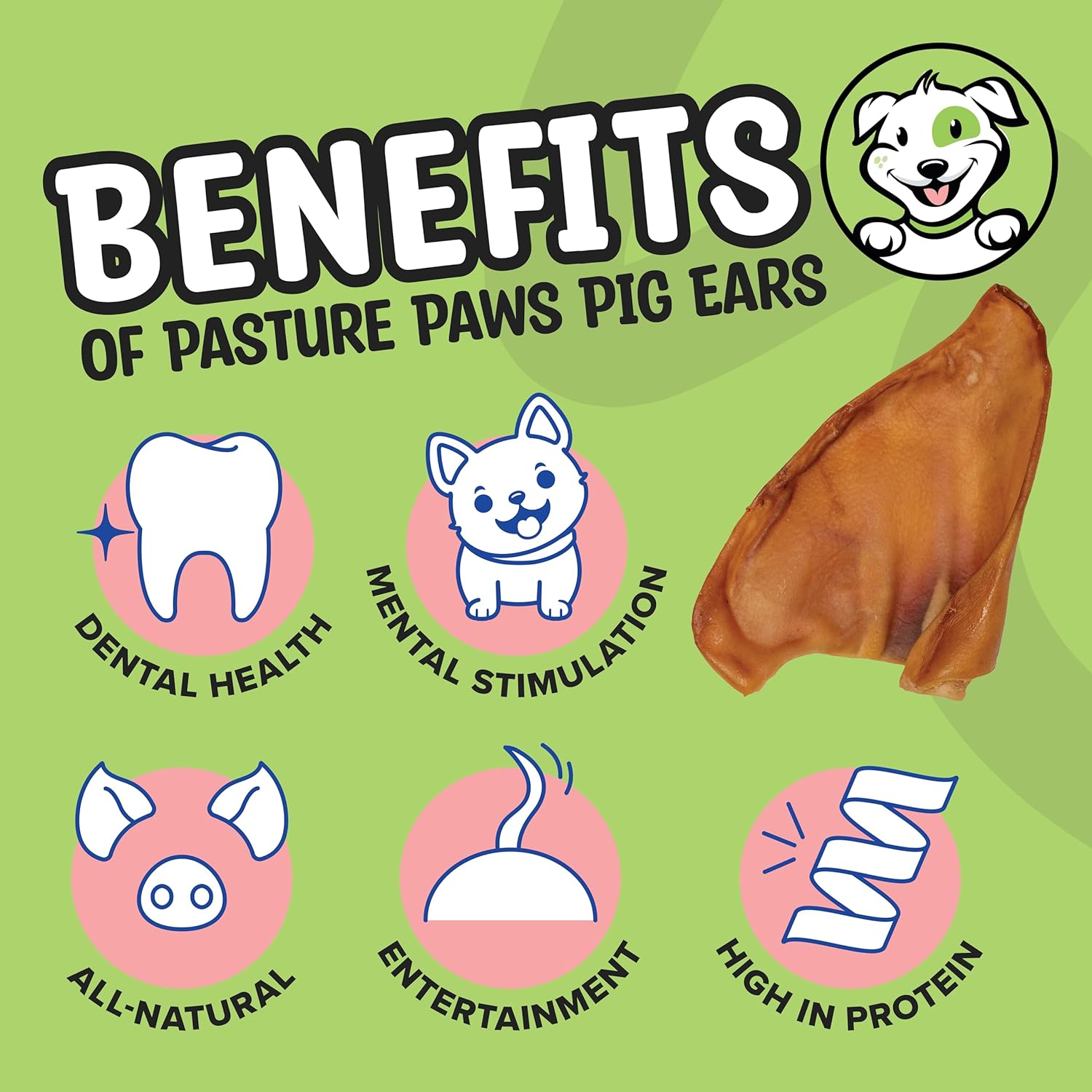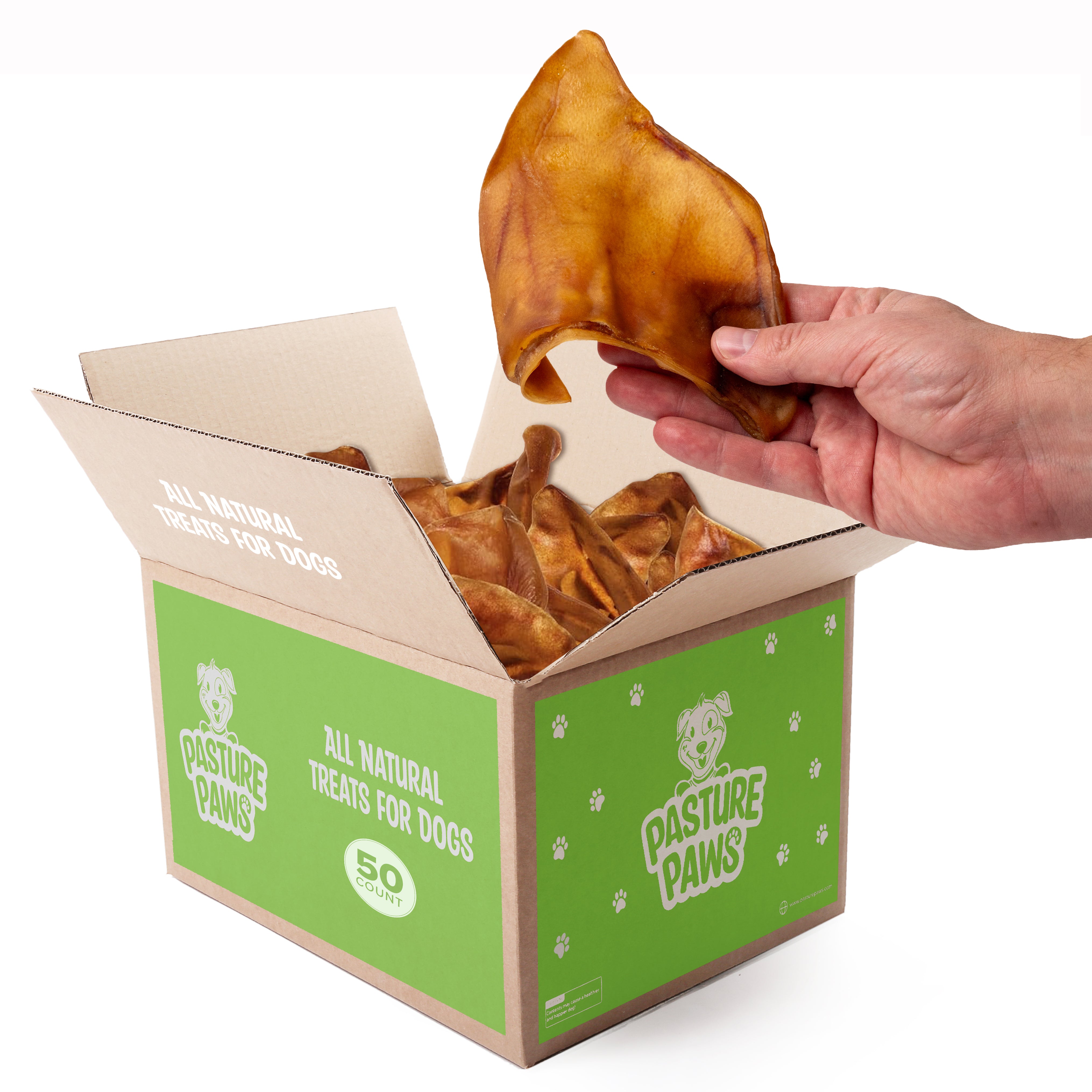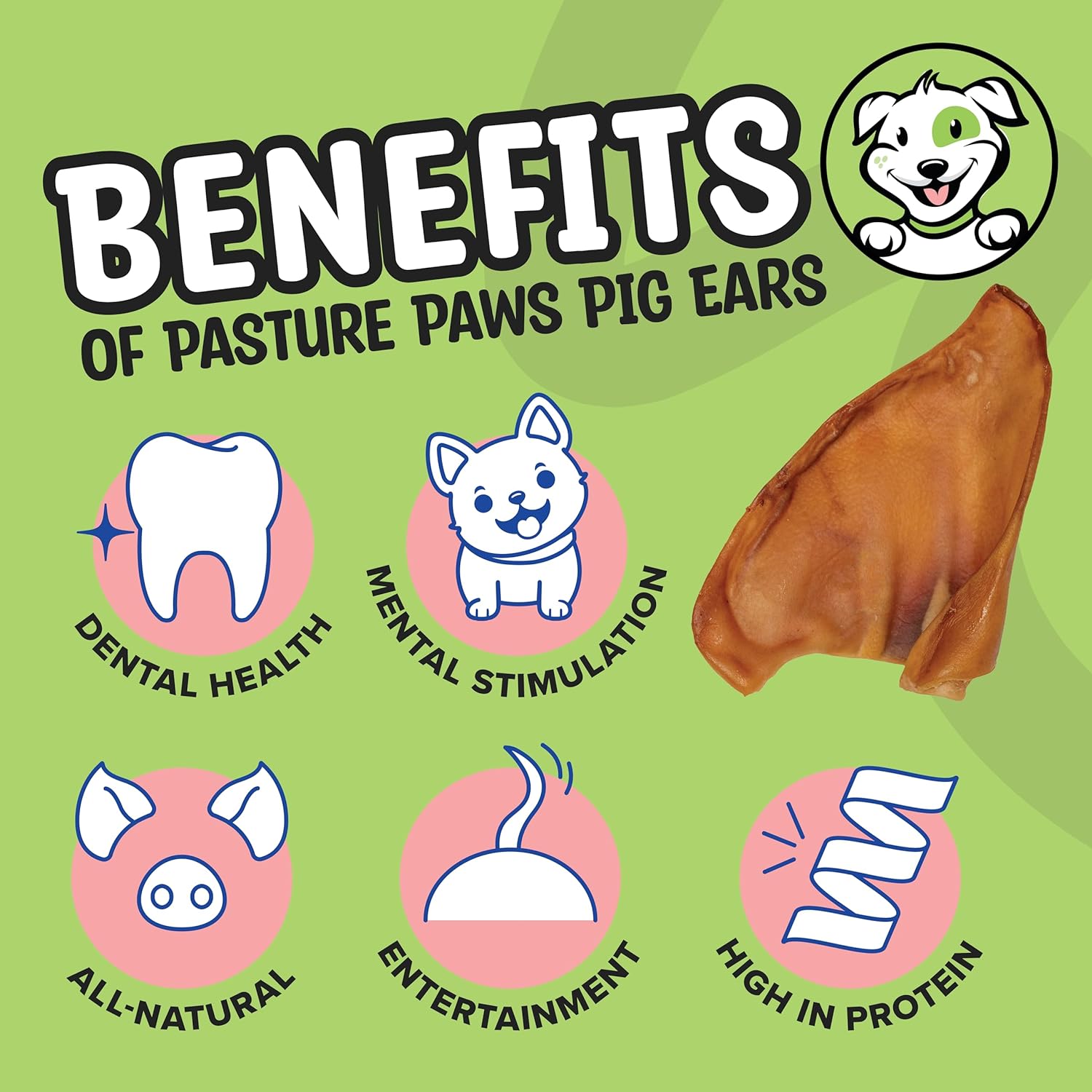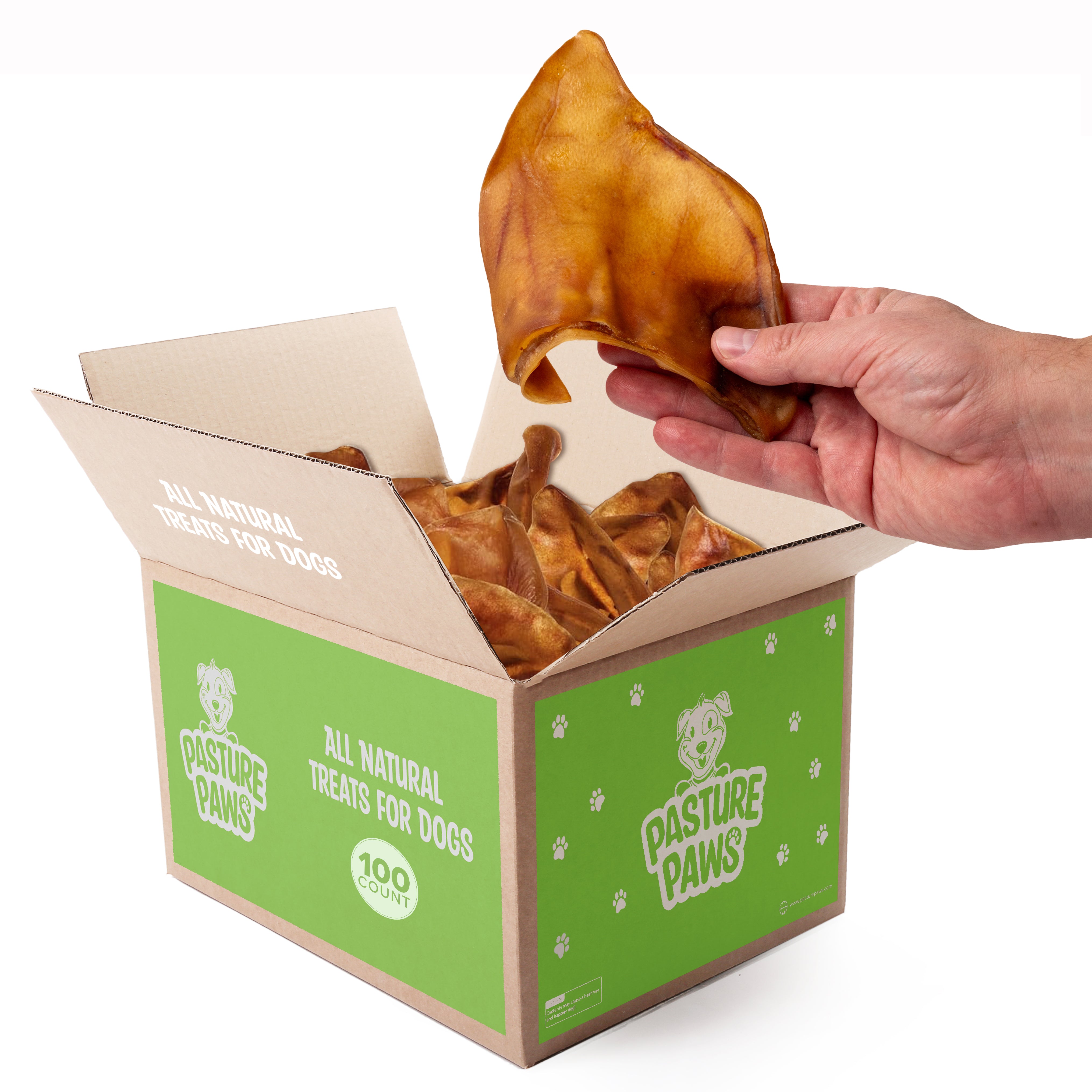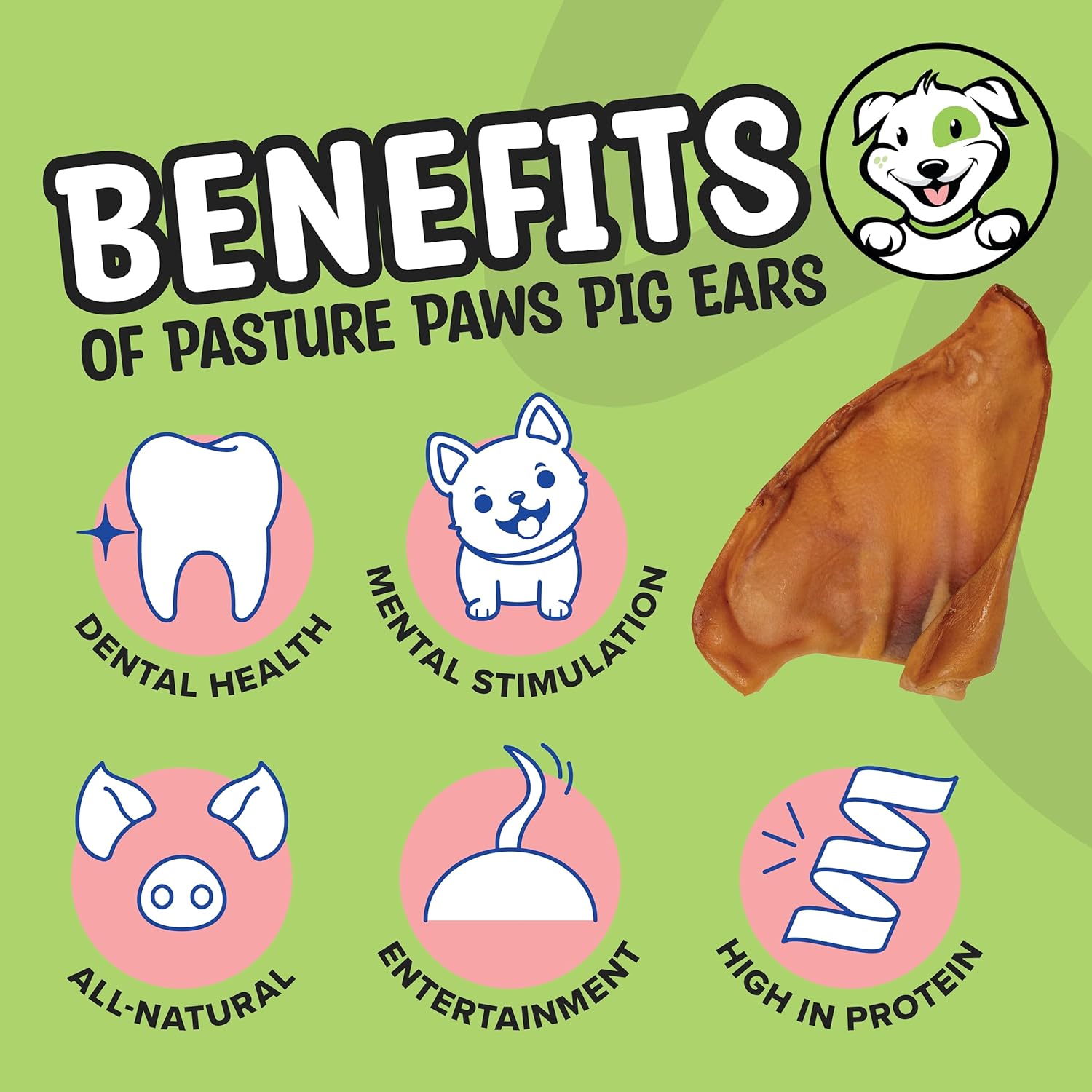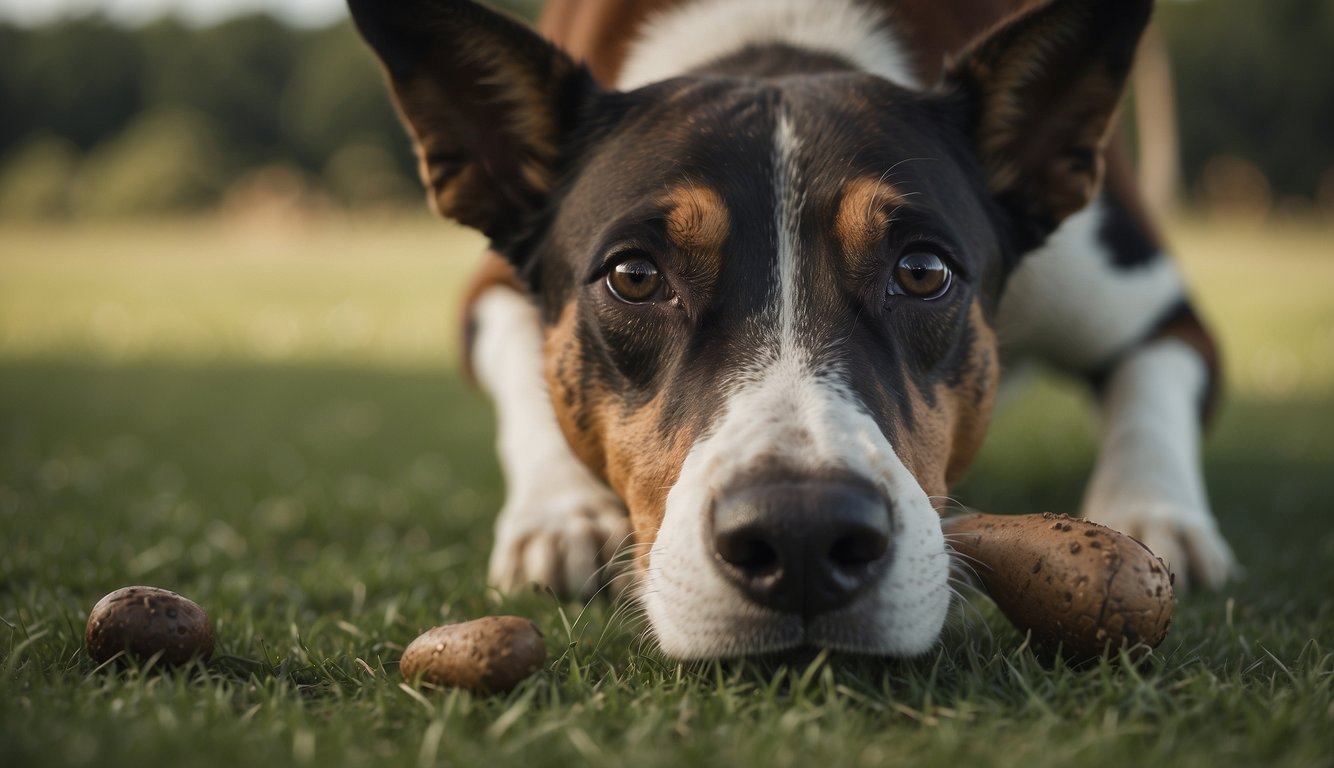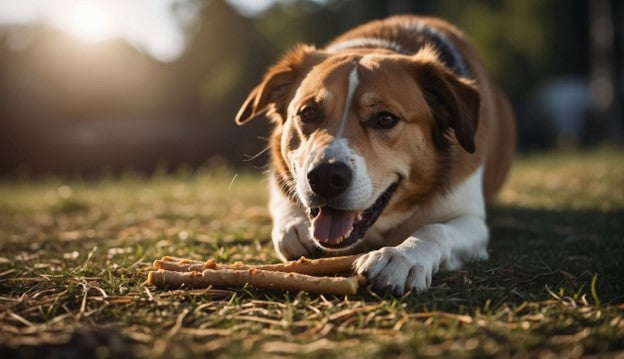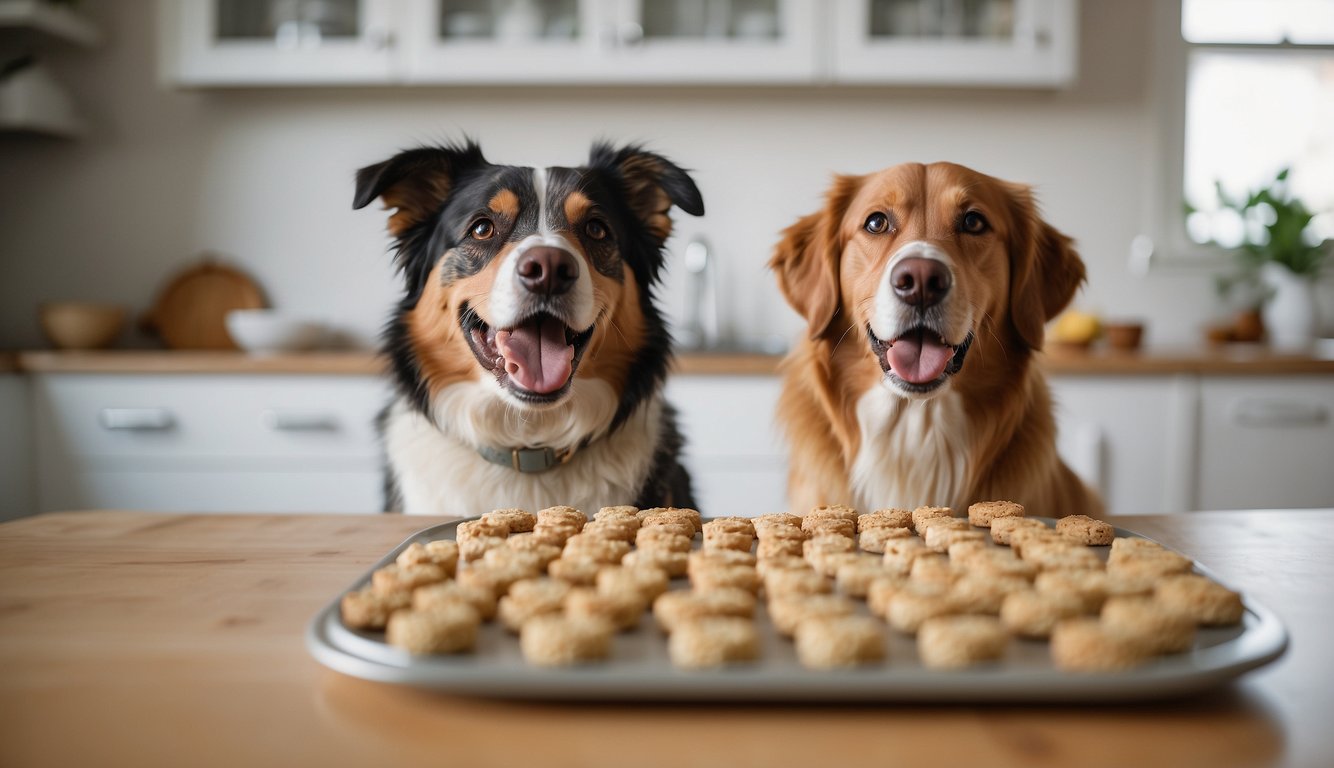If you're a dog owner, you might know cow hooves as a popular natural chew treat. But are cow hooves safe for dogs?
This article examines the safety of cow hooves for dogs. These natural treats, made from the outer shell of a cow's hoof, offer a long-lasting chewing experience and are often seen as a healthy alternative to rawhide. However, they can pose health risks if not used properly.
We'll discuss the pros and cons of cow hooves, provide all necessary information for an informed decision, and suggest some alternative natural chew options.
Are Hooves Safe for Dogs to Chew? Understanding Cow Hooves as Dog Treats

Cow hooves are a natural product that can be used as a long-lasting chew for dogs.
They are made of keratin, a protein that provides essential nutrients for your dog's overall health. Cow hooves are a popular choice for dog owners looking for natural dog chews.
The Nature of Cow Hooves
Cow hooves are a byproduct of the meat industry and are a natural source of protein for dogs.
They are cleaned and sanitized before being sold as dog treats. Cow hooves are a hard and durable chew that can help clean your dog's teeth and gums.
They are also a great way to keep your dog entertained and prevent destructive behavior.
The Appeal of Cow Hooves for Dogs
Cow hooves are a popular choice for dog owners because they are a natural and long-lasting chew.
They are also a great way to promote dental health and clean your dog's teeth. Cow hooves are a tasty treat that dogs love to chew on, and they are a great way to keep your dog occupied and entertained.
Cow hooves are a great alternative to traditional dog treats that are often filled with artificial ingredients and preservatives.
They are also a great way to provide your dog with essential nutrients and protein.
When choosing cow hooves for your dog, it is important to supervise them while they are chewing to prevent choking and to ensure that they are not swallowing large pieces.
Are Cow Hooves Safe for Dogs? Analyzing the Benefits

Cow hooves are a popular choice among dog owners as a treat and chew toy for their pets. While some may question the safety of cow hooves for dogs, there are several benefits to consider.
In this section, we will discuss the nutritional, dental, and behavioral advantages of cow hooves for dogs.
Nutritional Advantages
They also contain vitamins that can contribute to a dog's overall health. While cow hooves have a low nutritional value, they are still a healthy snack option for dogs when given in moderation.
Dental Health Contributions
Cow hooves are often used as dental chews for dogs due to their dental benefits.
Chewing on cow hooves helps to clean teeth and massage gums, which can aid in reducing plaque buildup and tartar. This can contribute to healthy teeth and gums, as well as fresher breath. However, it is important to note that cow hooves should not be used as a replacement for regular dental cleanings by a veterinarian.
Behavioral and Mental Stimulation
Cow hooves can also provide mental stimulation and entertainment for dogs, which can help reduce boredom and anxiety.
Chewing on a cow hoof can help satisfy a dog's natural urge to chew, which can prevent destructive behavior due to restlessness.
Additionally, the texture and taste of cow hooves can provide a sensory experience for dogs, which can be mentally stimulating.
Are Hooves Good For Dog? Potential Risks and Considerations

When considering cow hooves as a treat for your dog, it's important to be aware of the potential risks and considerations. Here are some things to keep in mind:
Choking and Blockage Hazards
Cow hooves can pose a choking hazard, especially if your dog is an aggressive chewer or tends to swallow large pieces.
Additionally, if your dog swallows a large piece of cow hoof, it could potentially lead to an intestinal blockage, which can be a serious and even life-threatening condition.
To reduce the risk of choking and blockage, always supervise your dog while they are chewing on a cow hoof and consider removing the hoof once it becomes small enough to swallow.
Age and Size Appropriateness
Not all dogs are appropriate candidates for cow hooves.
Puppies and older dogs may have a harder time chewing on the tough keratin material and may be more susceptible to choking or dental damage.
Additionally, cow hooves may not be appropriate for very small dogs or those with dental issues. Always consider your dog's age, size, and chewing habits before giving them a cow hoof.
Quality and Contamination Issues
It's important to ensure that the cow hooves you give your dog are of high quality and free from contamination.
Low-quality cow hooves may contain sharp edges or splinters that can cause injury to your dog's mouth or throat. Additionally, cow hooves that are contaminated with mold or chemicals can pose a serious health risk to your dog.
Always purchase cow hooves from a reputable source and inspect them carefully before giving them to your dog.
Are Cow Hooves Safe for Dogs? Choosing Safe and Suitable Alternatives

When choosing safe and suitable alternatives to cow hooves for your dog, there are a few things to keep in mind. In this section, we will discuss some of the factors you should consider when selecting alternative options for your furry friend.
Identifying Healthier Options
One of the most important things to consider when choosing an alternative to cow hooves is the health benefits it can provide for your dog.
Look for options that are digestible, all-natural, and provide nutritional value. Some examples of healthier options include:
- Bones: Raw bones, such as beef or bison bones, can provide a great source of nutrition for your dog. They are also great for dental health, as they help to scrape away plaque and tartar.
- Dental chews: There are many types of dental chews available on the market that can help to clean your dog's teeth and freshen their breath. Look for options that are made with natural ingredients and are free from artificial additives.
- Allergen-free options: If your dog has allergies, look for alternative options that are free from common allergens such as wheat, corn, and soy.
Considering Dog's Individual Needs
Another important factor to consider when choosing an alternative to cow hooves is your dog's individual needs.
Some dogs are aggressive chewers and require tougher options, while others are light chewers and need softer options. Here are some things to keep in mind:
- Aggressive chewers: If your dog is an aggressive chewer, look for options that are tough and durable, such as antlers or large beef bones.
- Light chewers: If your dog is a light chewer, look for options that are softer and easier to chew, such as bully sticks or dried sweet potato chews.
- Moderate chewers: If your dog falls somewhere in between, look for options that are not too hard or too soft, such as pig ears or lamb ears.
Best Practices for Offering Cow Hooves
Preparation and Supervision
When offering cow hooves to your dog, it's important to prepare them properly and supervise your dog while they chew on them.
Before giving your dog a cow hoof, inspect it to make sure it's clean and free of any sharp edges or debris that could cause dental damage or injuries.
Supervision is crucial when offering cow hooves to your dog, especially for power chewers.
Always monitor your dog while they chew on a cow hoof to make sure they don't break off any large pieces that could cause choking or vomiting.
If your dog is a heavy chewer, it's best to replace the cow hoof with a new one after a few days to prevent them from swallowing large pieces.
Recognizing When to Replace Them
Cow hooves are made from tough keratin, which makes them long-lasting but also means they have a low nutritional value.
While they technically have a high protein content, keratin is hard to digest, so most of it is not absorbed by your dog's body.
As your dog chews on a cow hoof, it will eventually wear down and become smaller. When the cow hoof becomes small enough to swallow whole, it's time to replace it with a new one.
There are some downsides to offering cow hooves to your dog. The smell can be overpowering and unpleasant, and there are potential risks involved, including the possibility of mouth injuries and tooth fractures.
It's important to consider your dog's dental health, age, and chewing habits before offering them a cow hoof.
Purchasing and Storing Cow Hooves
When it comes to purchasing cow hooves for your furry friend, it's essential to ensure that you're getting high-quality products. Here are some tips to help you find quality cow hooves:
Where to Find Quality Hooves
You can find cow hooves for dogs in several places, including pet stores, online retailers, and local meat markets. It's important to ensure that the cow hooves are from a reputable source and have been adequately processed to remove any harmful bacteria.
You may also want to consider purchasing hooves from the meat industry, as they are often of higher quality.
If you prefer to buy in bulk, you can find cow hooves in larger quantities at wholesale stores or online retailers. However, keep in mind that buying in bulk may mean sacrificing quality for affordability.
Storage and Handling to Prevent Spoilage
Proper storage and handling are essential to prevent spoilage and ensure that your dog's cow hooves remain safe to chew on. Here are some tips for storing cow hooves:
- Keep cow hooves in a dry, cool place to prevent moisture buildup, which can lead to spoilage.
- Store cow hooves away from other dog food to prevent contamination.
- Avoid storing cow hooves in airtight containers, as this can cause them to become moldy.
- If you're buying in bulk, consider freezing cow hooves to extend their shelf life.
It's also essential to handle cow hooves properly when giving them to your dog. Always supervise your dog while they're chewing on a cow hoof to prevent choking or other injuries.
Additionally, if your dog has a history of resource guarding, consider trading the cow hoof for a piece of hot dog or cheese to inspect the chew and prevent any potential issues.
Conclusion
While cow hooves can be a durable and natural chew option for dogs, "are cow hooves safe for dogs" is a question every pet owner should consider. Personally, I’ve found that my own dogs enjoy them, but I always supervise their chewing and limit their use to avoid any health issues.
The key is to weigh the benefits against the risks and ensure you’re making the best choice for your furry friend’s health and safety. Don’t hesitate to explore safer alternatives if you have any concerns. Your dog’s well-being is worth it! For more information, visit Pasture Paws!
Frequently Asked Questions
Can cow hooves be digested by dogs?
Yes, cow hooves can be digested by dogs. However, it is important to note that cow hooves are not meant to be swallowed whole. Dogs should chew on them until they break down into smaller pieces, which can then be safely swallowed. If your dog swallows a large piece of cow hoof, it can cause digestive issues.
Do cow hooves pose a risk to dogs' dental health?
Cow hooves can help promote dental health in dogs by providing a natural way to clean their teeth and exercise their jaws. However, there are some risks involved. Cow hooves can splinter, which can lead to mouth injuries. Additionally, if your dog chews on cow hooves too aggressively, it can cause wear and tear on their teeth.
What is the recommended frequency for dogs to chew on cow hooves?
The recommended frequency for dogs to chew on cow hooves varies depending on the dog's age, size, and chewing habits. As a general rule, it is best to limit cow hooves to occasional treats rather than making them a regular part of your dog's diet.
You should also monitor your dog while they chew on cow hooves to ensure that they are not overdoing it.
How should cow hooves be prepared before giving them to dogs?
Cow hooves should be thoroughly cleaned and sanitized before giving them to dogs. You can do this by soaking them in hot water and scrubbing them with a brush. It is also important to choose high-quality cow hooves that are free from any harmful chemicals or additives.
What are the best cow hooves available for dogs?
When choosing cow hooves for your dog, it is important to look for high-quality, all-natural options. Avoid cow hooves that are treated with chemicals or additives.
Some good options include cow hooves that are sourced from grass-fed, free-range cows and are minimally processed.
Are there any safer alternatives to cow hooves for dogs to chew on?
Yes, there are many safer alternatives to cow hooves for dogs to chew on.
Some good options include bully sticks, antlers, and natural rubber toys.
These alternatives are less likely to splinter or cause mouth injuries and can still provide a good way for dogs to exercise their jaws and clean their teeth.
